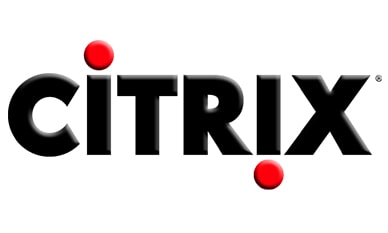
Module 1: Introduction to Citrix Virtual Apps and Desktops
- New Citrix Workspace Packaging
- Introduction to Citrix Virtual Apps and Desktops
- Citrix Virtual Apps and Desktops 2203 LTSR Refresh - What?s New
- End-User and Admin Experience Module 2: Planning - Architecture
Module 2: Planning - Architecture Overview
- Overview of Citrix Virtual Apps and Desktops Components
- Citrix Virtual Apps and Desktops Features and Resource Capabilities
- Hosting Platform Considerations
- Connection Flow Process Introduction
Module 3: Planning - Citrix Virtual Apps and Desktops Site Considerations
- Pre-Deployment Considerations
- Citrix Licensing Setup
- Delivery Controller Setup
- Citrix Virtual Apps and Desktops Site Setup
- Redundancy Considerations
Module 4: Planning - Provisioning Workloads: VDA and Master Image Prep
- Master Image Creation Methods
- Master Image Requirements
Module 5: Planning - Provisioning Workloads: VDA and Master Image Prep
- Machine Catalogs and Delivery Groups
- Provisioning Methods and Considerations
- Machine Creation Services - Deep Dive
- MCS Environment Considerations
Module 6: Planning - Providing Access to End Users
- StoreFront Overview
- StoreFront Beacons
- Citrix Workspace app
- StoreFront Features
Module 7: Planning - Managing the User Experience
- Citrix Policies - Methods to Manage Policie
- Citrix HDX Features - Using Policies
Module 8: Planning - Published App and Desktop Presentation and Management
- Published App Properties
- Server OS Published App Optimizations
- Published App Presentation
- Application Groups
- Apps and Desktops Presentation
Module 9: Planning - Printing for User Sessions
- Printing Concepts and Printer Provisioning
- Printer Drivers
- Print Environment - Considerations
Module 10: Planning - Profile Management
- User Profiles - Introduction and Considerations
- Configuring Citrix Profile Management
- Profile Containers - VHDX-based Policies
Module 11: Planning - Manage the Site
- Delegated Administration
- Use PowerShell with Citrix Virtual Apps and Desktops
- Power Management Considerations
Module 12: Planning - Citrix Virtual Apps and Desktops Basic Security Considerations
- Citrix Admin Security Considerations
- XML Service Security Considerations
- Secure HDX External Traffic
Module 13: Rollout - Citrix Workspace app Deployment and Configuration
- Citrix Workspace Deployment and Configuration
Module 14: Manage Citrix Virtual Apps and Desktops Deployment
- Citrix Director Introduction
- Monitor and Interact with User Sessions
- Published Apps Analysis
- Monitor the Machines Running the VDA
- Site Specific Common Monitoring
- Alerts and Notifications
- Optimize Citrix Director Monitoring with Citrix Application Delivery Management
- Citrix Analytics Introduction
- Prepare to use Citrix Analytics
- Types of Analytics
Module 15: Manage - Supporting and Troubleshooting Citrix Virtual Apps and Desktops Workloads
- Introduction to Supporting a Citrix Virtual Apps and Desktops Site
- A List of Common Tools
- Common Tasks for Proactive Administration
Module 16: Optimize - Citrix Virtual Apps and Desktops Deployment
- Optimizing VDAs - Citrix Optimizer
- Citrix Workspace Environment Management Overview
- HDX Optimization
Module 17: Introduction to Citrix Cloud with Citrix DaaS
- What is Citrix Cloud?
- Why Citrix DaaS?
- Migration from Citrix Virtual Apps and Desktops to Citrix DaaS
- Citrix Cloud Administration
This course is recommended for administrators and engineers.
Strong foundational knowledge of Windows Server and Desktop operating systems, Active Directory, Policies, Profiles, Networking and Hypervisors.
What you'll learn:
- Understand the differences between Citrix Virtual Apps and Desktops 2203 LTSR on-premises.
- Install, configure, and manage Citrix Virtual Apps and Desktops environment.
- Create Citrix Virtual Apps and Desktops workloads.
- Deliver app and desktop resources to users.
- Introduce Citrix Cloud and Citrix DaaS.
 Print Page
Print Page